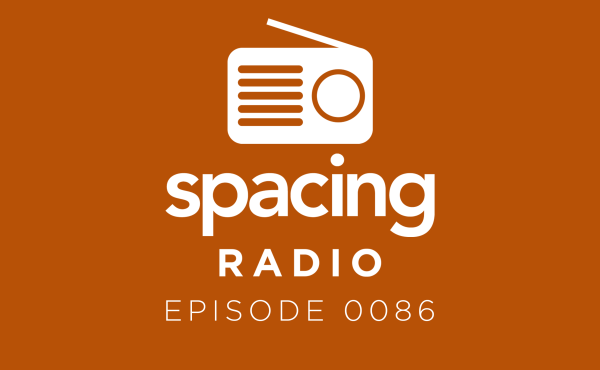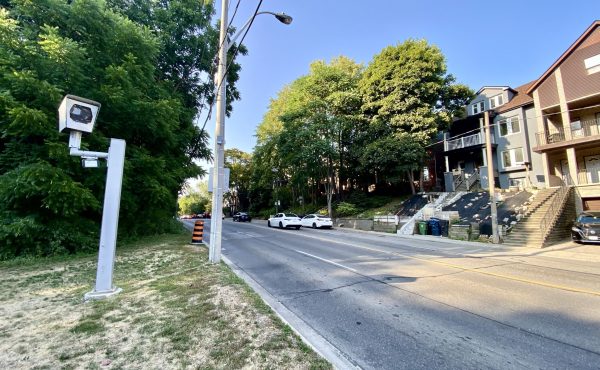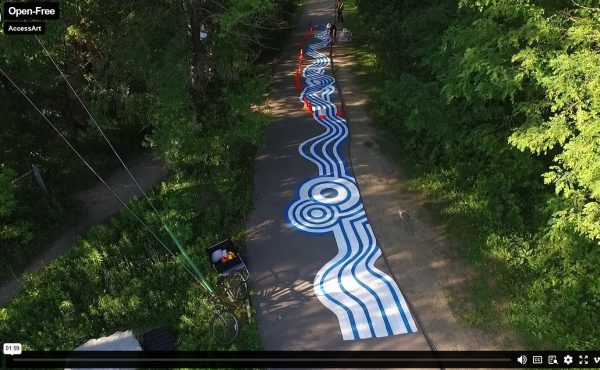One option that was not discussed in the CivicAction report on transit funding for the GTHA, but which I suspect will end up being part of the discussion, is a surcharge on transit fares dedicated to building new transit infrastructure.
This option is likely to come up if one of the primary revenue generators targets drivers (parking levy, gas tax, tolls). While new transit benefits drivers indirectly by reducing congestion, it benefits transit riders directly by improving their experience, speed and options. If drivers are paying, the logic goes, why shouldn’t transit riders also contribute?
The CivicAction report (PDF) did propose two funding tools that would indirectly charge property owners or businesses who benefit from transit (Value Capture Levy, Local Payroll Tax), but these are obscure and complicated to implement (they’ll be touched on tomorrow). A transit fare surcharge is clear and direct.
Amount charged
A 10-cent/fare surcharge in Toronto raises about $30 million a year (depending on the details). Given the much lower transit use in the rest of the GTHA, a region-wide surcharge would probably raise $45 million/year at most, likely less.
This amount would be a drop in the bucket compared to the costs Metrolinx is facing. A surcharge might be useful as a local charge to help pay for local capital costs of TTC expansion that are not part of Metrolinx’s plans, if implemented at the same time as Metrolinx region-wide charges on drivers.
Cost to implement
Rating: good
A surcharge would be simple to implement — the collection system is already in place.
Behaviour incentives
Rating: Terrible
A transit fare hike would serve to discourage transit use, which is the opposite of the goals of the Metrolinx plan. It would be a behaviour dis-incentive.
However, in recent years 10-cent fare hikes have not reduced transit use, in part because the price of gas is also going up. So if the surcharge was implemented in combination with charges that increase the cost of driving, the result could be neutral.
Political viability
Rating: Good, if …
A transit surcharge is only politically viable if drivers are also paying for transit infrastructure through a gas tax, parking levy or tolls.
A transit fare surcharge would negatively affect many low-income people who rely on transit, which would create opposition. The level of opposition would increase along with the size of the proposed surcharge.
On the other hand, transit riders would benefit directly from the result of the charge. If transit riders know that drivers are also contributing more than they used to, they are more likely to be accepting of the charge.
The most likely political purpose of a transit surcharge would be to encourage drivers to be more willing to accept a driver-targeted revenue tool (“everyone is chipping in, transit riders are contributing too”).
What do our readers think of this option? Are there other issues, positive or negative, with a transit surcharge?
Tomorrow: smaller revenue tools
photo by Brendan Johnson






7 comments
I agree and would say to make it a 50-cent surcharge at the very least. That may discourage some people from using transit but it’s the only way forward in my opinion. Everyone has to contribute more, transit riders included. However, said surcharge should be defined with both a beginning and end-date (10 years? 20 years?) so that it doesn’t end up being swallowed up into the TTC’s operating costs.
Maybe a bit off topic, should TTC evolves into some sort of zone-based fare system? Right now the short-trip riders are paying a lot to subsidize people doing long commute. Supposedly with the introduction of smartcard will make it easy to implement.
I think ultimately the goal of behavior change should be encouraging more compact, efficient urban pattern, where people live close to their work and in dense community where amenities are within walking distance. Making it easy and cheap for people to travel a long distance to satisfy their everyday needs, even by transit, runs counter this goal.
the invisible. and most harmful aspect of a transit surcharge is the fact that there is no option to those who really cannot afford to pay even more to get around the City (except the bicycle, of course; but that is not a possibility for everyone). As usual the hardest hit by any tax or funding initiative are the least prosperous within the City, and they would simply have to pay the rate, whatever is imposed upon them, with no recourse. [what could they do, boycott the TTC?]
As usual only those with options can afford to consider policy initiatives.
I suggest that the surcharge should be at least $1. The behavioral incentives would not be poor at all. If implemented along side a toll or gas tax, so long at it was less, it would be still make PT the least effected option.
Completely useless idea if the TTC is already the most expensive bog-city transit system in North America, which it is. Were the TTC on the less expensive side, sure, raise fares and dedicate a piece to capital improvement. But you simply cannot do this when riders are already overpaying.
The other problem is that no other city has ever done this. Toronto is not so good at trying things never done elsewhere, except for electing idiotic mayors (real good at that skill).
The rest of this series shows us that there are lots of options to fund transit. This is clearly the worst one – the TTC is already nearly the least subsidized transit system in the world, and its riders pay most of the cost. In fact, I think freezing transit fares for at least a few years would make some of the other taxation options to pay for transit more palatable (eg, you’ll have to pay a 1% sales tax, but you clearly get something back for that money with lower/frozen fares)
I’d consider rejigging the transit fare system to lower or freeze the cost of monthly or weekly passes, and raising the cost of individual fares. Or a zone system. Or maybe a higher cost to use the subway vs. buses or streetcars.
But all these sort of mess with the simplicity of the current system.
A 10 cent surcharge on a $3 fare is 3.3%.
A 10 cent gas tax on $1.25 per litre is 8%.
The final solution will be a combination of choices. It would not be fair to have road users pay 2.5 times more than transit users, when the money will be used to help transit users. I think both this surcharge and gas tax is needed. Maybe 2 cents per litre tax and a 10 cent transit surcharge, plus other measures.